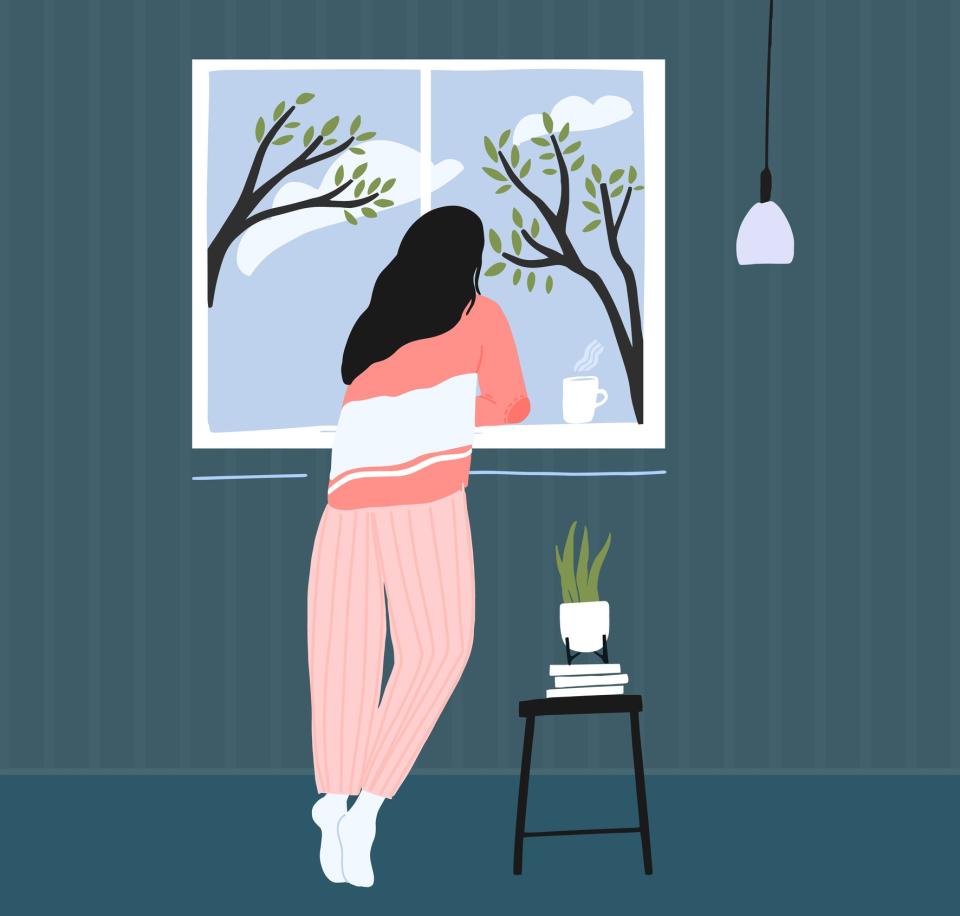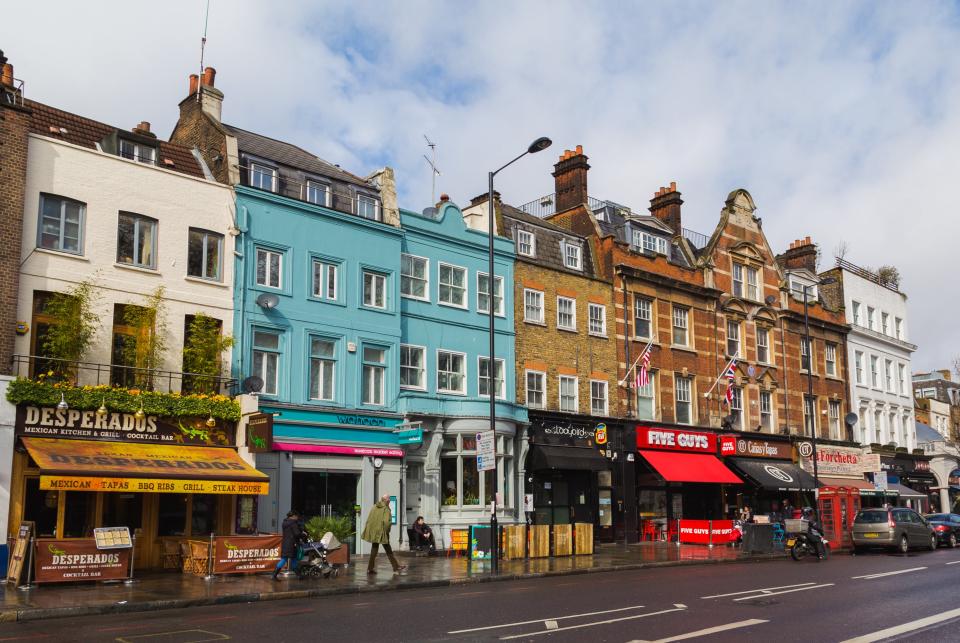What it’s like to be an agoraphobic travel writer during lockdown

Sian Meades-Williams felt frozen by fear in her London flat during lockdown
(iStock)Last July I stopped leaving the house. While friends and family kept their spirits high during lockdown with bike rides and long walks, I couldn’t step outside without having a panic attack. I wasn’t just avoiding going to the shops because of government guidelines, I was frozen with fear on the other side of my front door.
Everyone’s world shrunk last year, but the shock and anxiety of lockdown caused me to develop a panic disorder, which led to agoraphobia – something that I suffered with for a short time more than a decade ago. While I’m undoubtedly a homebody – I’ve freelanced from home for nearly 15 years, and we’ve just got a kitten – I’m also a regular travel writer.
I’ve a near obsession with Landmark Trust properties, have worked in Spain and China, and – until March last year – my Two Together Railcard was a prized possession. Lockdown took something away from me; my independence, my curiosity, and I lost a part of my identity.
I missed being nosy. I missed strolling down a street I’ve never seen before, or exploring a new part of my London neighbourhood. They sound like inconsequential things, but if we’ve learnt anything about ourselves in the pandemic it’s that small daily joys make up a contented life.
Agoraphobia is often thought to be a fear of open spaces, but that’s not the case. For many sufferers it’s a fear of being trapped somewhere with no escape route or exit. The one-way systems that have been installed in busy places during the pandemic felt to me like being in a fairground hall of mirrors. So I retreated to my home, the place I felt safest. In the middle of a pandemic it was easy to tell myself that I was staying inside for the right reasons.
In a 2020 report, mental health charity Mind collected the experiences of over 16,000 people and found that “more than two-thirds of adults with mental health problems reported that their mental health got worse during lockdown. As a direct consequence of the pandemic and all that follows, many people who were previously well will now develop mental health problems.”
The full extent of the pandemic on our mental health can’t be measured yet, but the NHS statistics on agoraphobia were already alarming, particularly for young women. It says that in the UK, up to two people in 100 have a panic disorder, around a third of whom will go on to develop agoraphobia. The condition is twice as common in women as men, according to the NHS, and it usually starts between the ages of 18 and 35.
I started seeing a therapist (via Zoom) last September, when the sun was still high but our expectations about “saving summer” were significantly lower. Step by step, I began to rediscover my neighbourhood again. I used to think that travel was about how far you went, how many trips you took in a year, never unpacking a suitcase. Now I think it’s about how you choose to look at the world around you. Every unexplored corner felt like a new experience.
My first outing was to the little churchyard opposite Pophams in Islington – a nearby cafe with excellent pastries. I’ve delighted in spending huge chunks of holidays in tiny towns in France and Italy, looking for the perfect place to sit in the sun with a book. When you find a lovely spot 100 metres from your front door the feeling is much the same. Like a little corner of the world is entirely yours.
It’s about how you choose to look at the world around you. Every unexplored corner felt like a new experience
Part of my therapy was about staying present while outside, rather than dashing back to the comfort of my little flat. I’m noticing so much more around my local area as a result. I’ve promised myself I’ll climb up Canonbury Tower when it’s possible, and was delighted to find that the nearby Culpeper Community Garden volunteers made a beer with their own hops. I'm incredibly curious about the nearby townhouse that’s home to a 1950s jukebox collection. My therapy also took me to new shops – a more manageable task before braving a large supermarket – and here I found Italian deli Montes, slipped down a side street, with olives so big they were best eaten like corn on the cob.

The New River Walk is a peaceful joy again. It runs silently alongside London’s Upper Street, from Canonbury to Angel, but most never wander off the main street. Local dogs bound over the bridge ahead of their walkers, happy ducks want your sandwiches and – if you happen to be looking very closely – you’ll spot a pixie door hidden in the root of a tree. All of these small discoveries felt a lot like being on holiday hundreds of miles away. Like watching the seasons turn, there's an awe in something new, even when it's always been there.
My agoraphobia has passed, finally – I haven't had a panic attack in three months – but now we’re back in lockdown again, I can feel something tugging at me. There’s fear in the unknown, of course, but there’s also fear in reliving a past trauma. So I’m taking it one step at a time, looking at each day afresh, optimistic and lightly curious. Travel to far-flung destinations might not be realistic but now I think I’m chasing a feeling, rather than a new place. I'm not venturing far, sometimes just to see the ducks, but every step feels like I'm one closer to myself. That's the reason any of us travel at all.
If you are experiencing feelings of distress and isolation, or are struggling to cope, The Samaritans offers support; you can speak to someone for free over the phone, in confidence, on 116 123 (UK and ROI), email jo@samaritans.org, or visit the Samaritans website to find details of your nearest branch.
Read More
I did a silent retreat in my flat – lockdown has never felt so good
Why Scilly offers the perfect spots to hole up after lockdown
Covid testing before travel to the UK: the key questions and answers

 Yahoo Finance
Yahoo Finance 